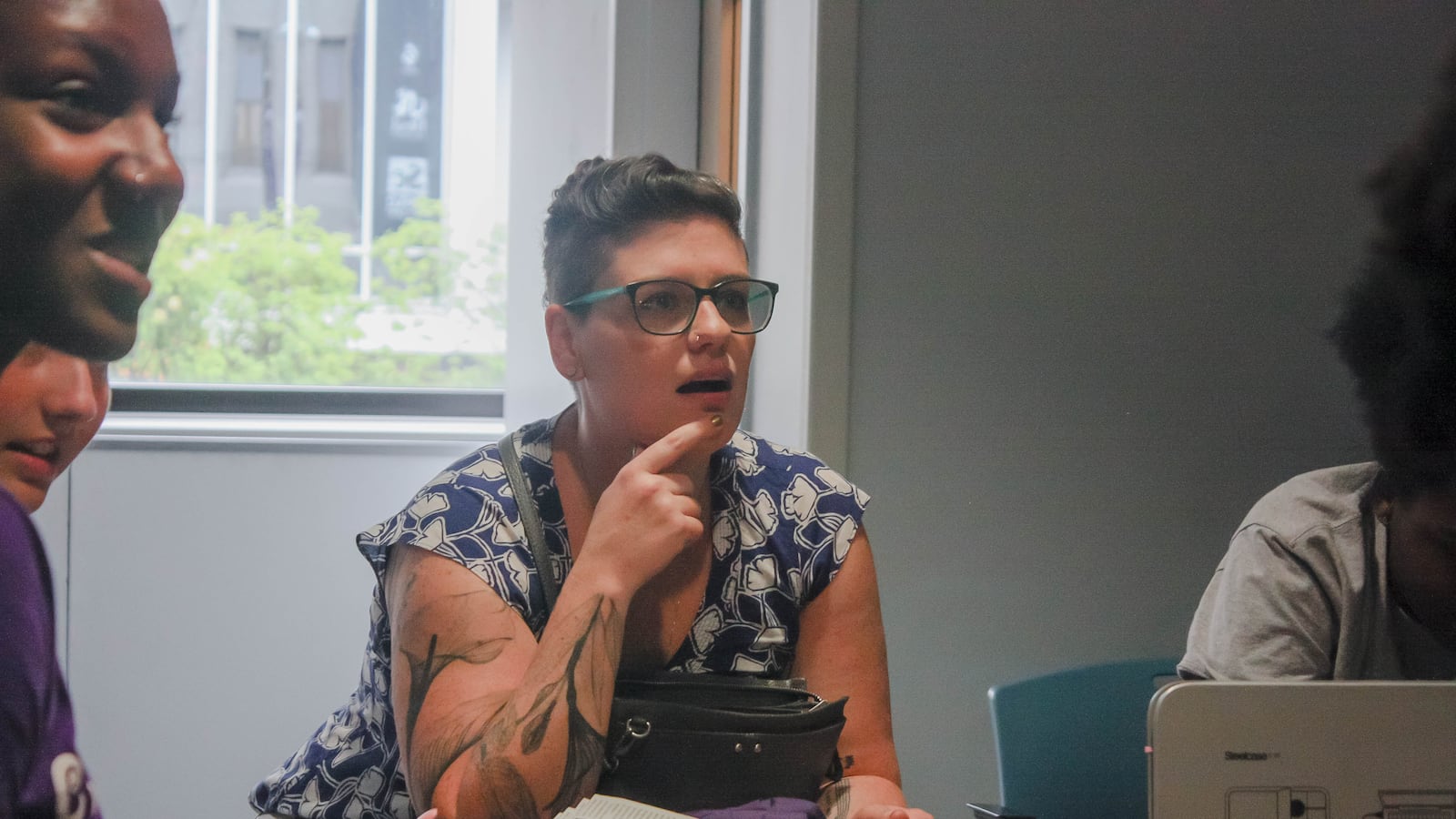This article was originally published in The Notebook. In August 2020, The Notebook became Chalkbeat Philadelphia.
On Tuesday night, six Benjamin Rush High School students and recent graduates met at Drexel University to perform at the last minute for a conference. They gathered around a table talking about how they had pulled together arrangements in the last 24 hours. They had very little time to practice.
In the center was Suzanne Spencer, reassuring them. “I knew you were up to the challenge. I know you can do this,” she said.
Spencer has been a music teacher at Rush for the last 10 years. She said that when she was hired, she was tasked with building the program from the ground up. Along with teaching quarter notes, scales, and harmonies, she said, it is important to weave in lessons about self-worth, community, and reflection.
“Artists are really emotional people,” she said. “Some of these kids have the most traumatic childhood stories and not the most amazing home lives. So, it was really important for me to create a community and a family in my program.”
“You could be in the worst mood or have a terrible home situation, and you come in and walk into that room and you can’t be upset,” said Lauren Farrell, a recent graduate of Rush. “Everyone knows each other, everyone cares about everyone, everyone knows each other’s strengths and weaknesses and is rooting for each other.”
Spencer said she feels mental health is inherently intertwined with music education.
“When you have a mental illness, you feel disconnected. You want to connect, and music is such an easy way to do that,” she said.
Farrell said she was in a “really bad place” when she was Spencer’s student, and Spencer listened and helped her through it.
“It wasn’t her job to take care of me, and I didn’t want to bother her with it. The mental health and well-being of her students is something she feels is part of her job as a teacher,” Farrell said. “She went through everything that we’re going through, and she wants us to understand that we’re not alone. She’s genuine. It changed and saved my life.”
Spencer struggled with depression and body issues as a high schooler. She said that surrounding herself with “as much music as possible” helped her manage.
“I used music and art to get out of my depression. Whenever I’m feeling that way, music is the first thing that gets me out. This is my escape, this is how I get out of my bad place,” she said.
“I’ve been super honest and open with [my students] about my anxiety and depression. I think that helps them realize it’s OK to talk about. I really like to stress that it’s OK to have some mental health problems. It doesn’t mean you’re crazy. There’s that whole stigma around mental health.”
Spencer said that although she’s proud of what she’s been able to accomplish as an educator in regard to mental health, she thinks schools should provide more resources and support staff.
“I feel like I am the school psychologist, and I am not trained for that,” she said.
Spencer also said that she would love to pass on her outlook that music education can be more than just technical.
“We need to listen to the kids more, not just follow the curriculum,” she added.
On Tuesday night, Spencer’s students performed the two songs they had prepared to big applause.
“We were so willing to get together and do this for her,” Deb Sarmarini, one of the performers, said. “She’s not just a teacher. She’s a friend.”
Watch the students of Benjamin Rush perform here and here.
Stories about the influence of outstanding teachers are made possible by a grant from the Lindback Foundation.


